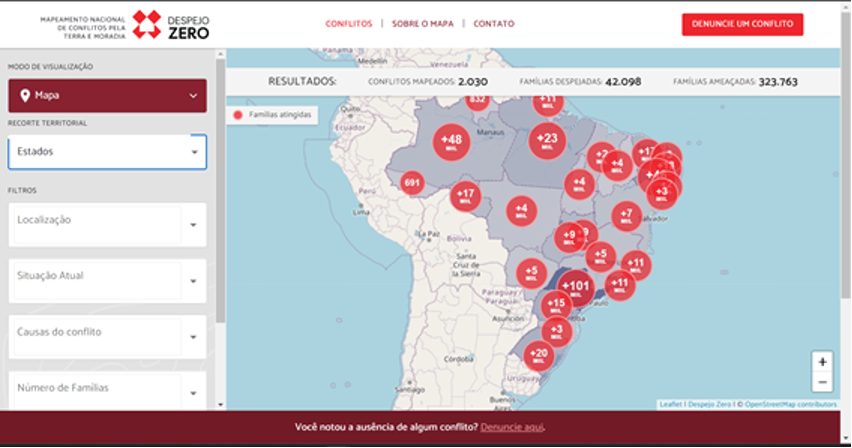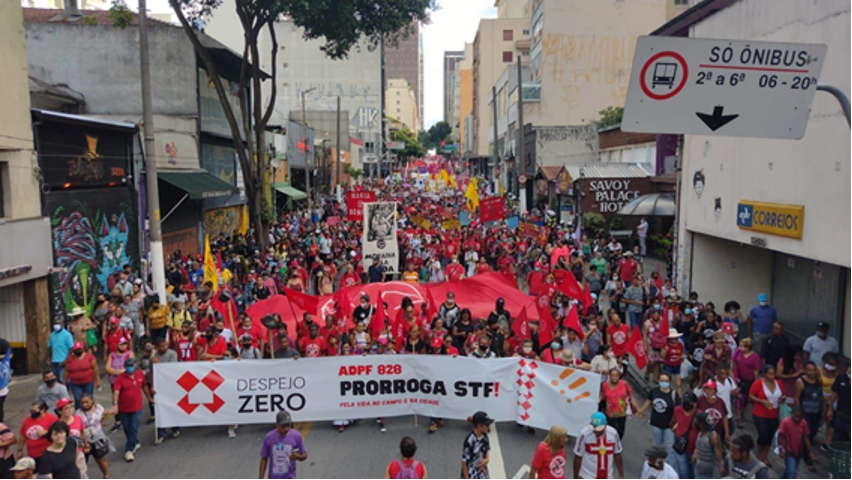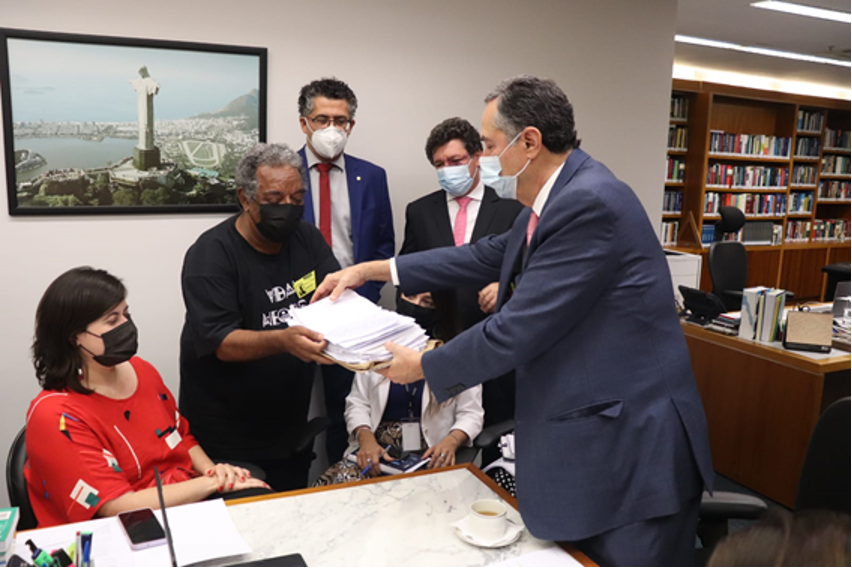How could a problem that affects at least 1,5 million people in a country like Brazil be so unheard of? How could so many families be evicted from their homes by public authorities, or with their endorsement, when staying at home was one of the main measures to contain a global health crisis, such as the Covid-19 pandemic? These contradictions brought together over 175 civil society organizations, social movements, and university groups to denounce and advocate against forced evictions in Brazil and shed light on the connections between housing tenure security and other human rights such as health, education and work.
The Zero Evictions Campaign was launched in July 2020, inspired by similar efforts around the globe, when Brazilian activists started to receive information of hundreds of families being left homeless while the country was mourning the Covid-19 victims. All the non-essential activities in the country were on hold, but judicial authorities continued to order disadvantaged families out from the property of wealthy landowners, despite the fact that there was no housing alternative being offered. Taking advantage of technology, civil society representatives from all over the country started to meet on a weekly basis to fight against this human right violation through data, communications, and evidence-based advocacy dialogues with decision makers.
Since there is no official database on forced evictions in Brazil, the Zero Evictions Campaign developed a national methodology and information system to collaboratively identify threats of eviction around the country. Building on lessons from previous mapping efforts, such as the Land Conflict Map from the National Forum of Urban Reform, the data collection strategy combines online tools with face-to-face efforts, such as Reporting Missions, to not only identify cases but also hear and report the life stories behind the numbers. Analysis of the data being gathered showed important aspects of the urban land conflicts in Brazil, such as the fact that judicial authorities often overestimate the property rights of wealthy landowners and disregard that housing is a human right, and that governments often promote forced evictions and are negligent in providing housing alternatives for the most vulnerable groups being displaced.

Figure: Zero Eviction information system to identify and report housing rights violations, available at https://mapa.despejozero.org.br/
Having information about the land conflicts and threats of forced evictions was crucial to fill a data gap and support evidence-based policy dialogues. But data alone is not enough. Communications strategies were needed to make sure that relevant information reached the target audience, from social movements in street demonstrations, to ministers of the Supreme Court. The Zero Evictions Campaign fact sheets were produced and published every three months, or near important advocacy milestones. Through social media and mass media, the highlights and insights from the numbers were disseminated together with the life stories of those affected by forced evictions. The goal was to bypass a deep-seated culture of criminalization of the most disadvantaged groups that have to resort to unconventional or so-called “informal” practices to meet a basic need such as having a place to live, and to shed light on State’s responsibilities to promote and secure housing as a human right.
To complete the tripod, the advocacy efforts combined strategic litigation and informed dialogues with decision makers, especially in the legislative chambers and in the judicial system, all connected with online and street demonstrations. The figures and stories from the Zero Evictions Campaign were all around the news and in people’s mouths, and became an important reference for decision makers, such as the federal law and the unprecedented Supreme Court decision that prohibited all forced evictions in the country from June 2021 until October 2022. This decision helped to suspend at least 312 cases of forced evictions, and allowed at least 394.050 people to remain at home during the Covid-19 pandemic.

Figure: Street demonstrations requesting the Supreme Court to maintain the prohibition around forced evictions in Brazil.

Figure: Zero Evictions Campaign representative, Benedito Barbosa (Dito) delivers hundreds of letters from residents of communities threatened by forced evictions to Supreme Court Minister Luis Roberto Barroso.
Much work still needs to be done, while in addition to the people threatened with evictions, there are still 6,2 million households facing housing deficit in the country. Since October 2022, the Supreme Court decision that suspended forced evictions is no longer valid, but subsequent decisions determined that all subnational courts should establish a mediation committee to address land conflicts that involve the potential displacement of impoverished families, and that these families must be heard and provided with resettlement alternative if the eviction is the last resource. The Campaign continues to map and disseminate information about urban land conflicts, and to push for policy and systems change, such as the creation at national government of a committee to bring together different Ministries and stakeholders to address land conflict and prevent forced evictions, such as the Ministries of Justice and Public Security, Human Rights, Cities, as well as the Ministries of Women, Indigenous People, and Racial Equity.
If any lesson was learned through the pandemic, it was to show the power of unity and alignment within civil society, together with data, communications and advocacy into changing policies and peoples’ realities on the ground, particularly when the protection of housing rights is a matter of death and life.

